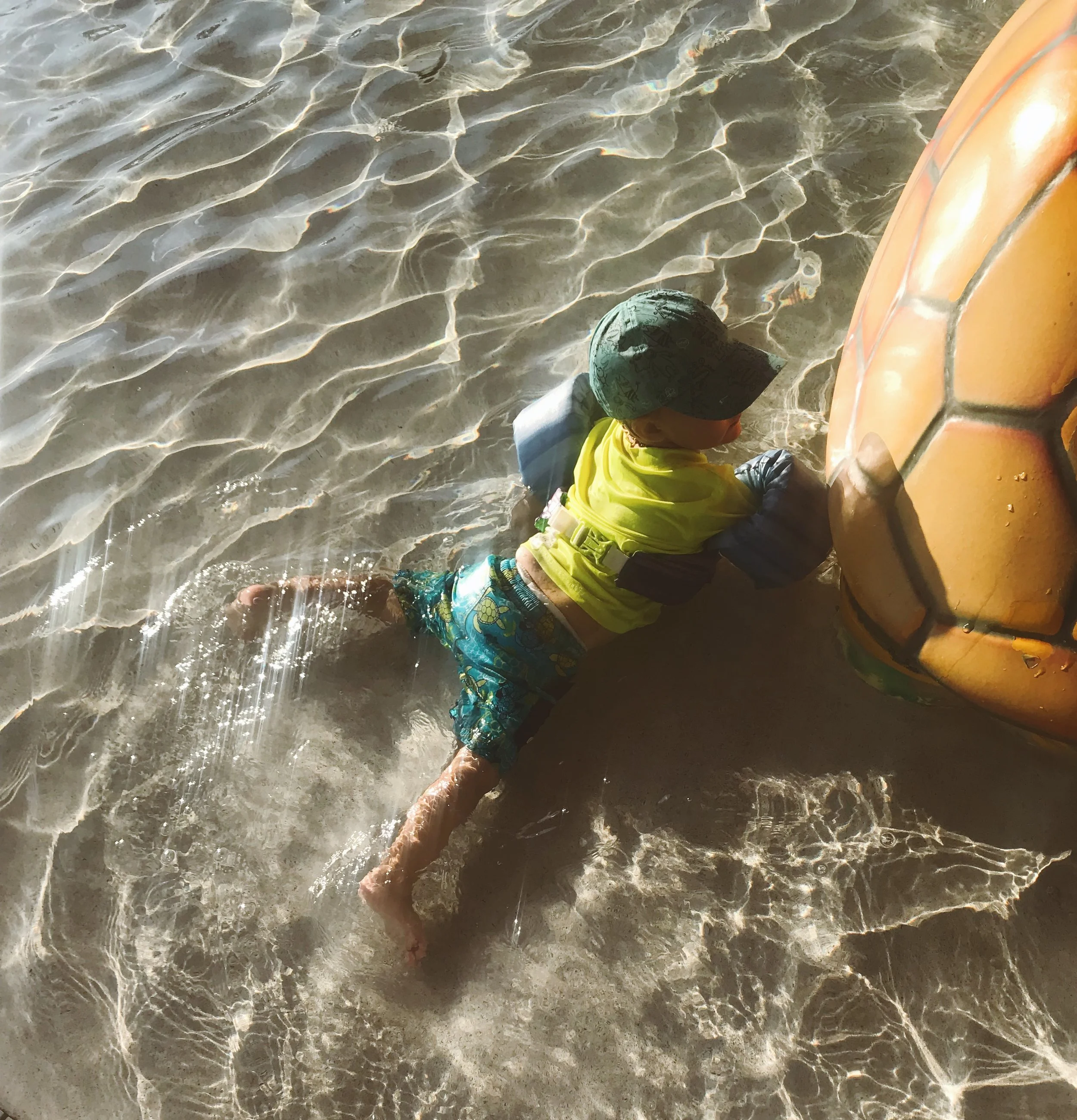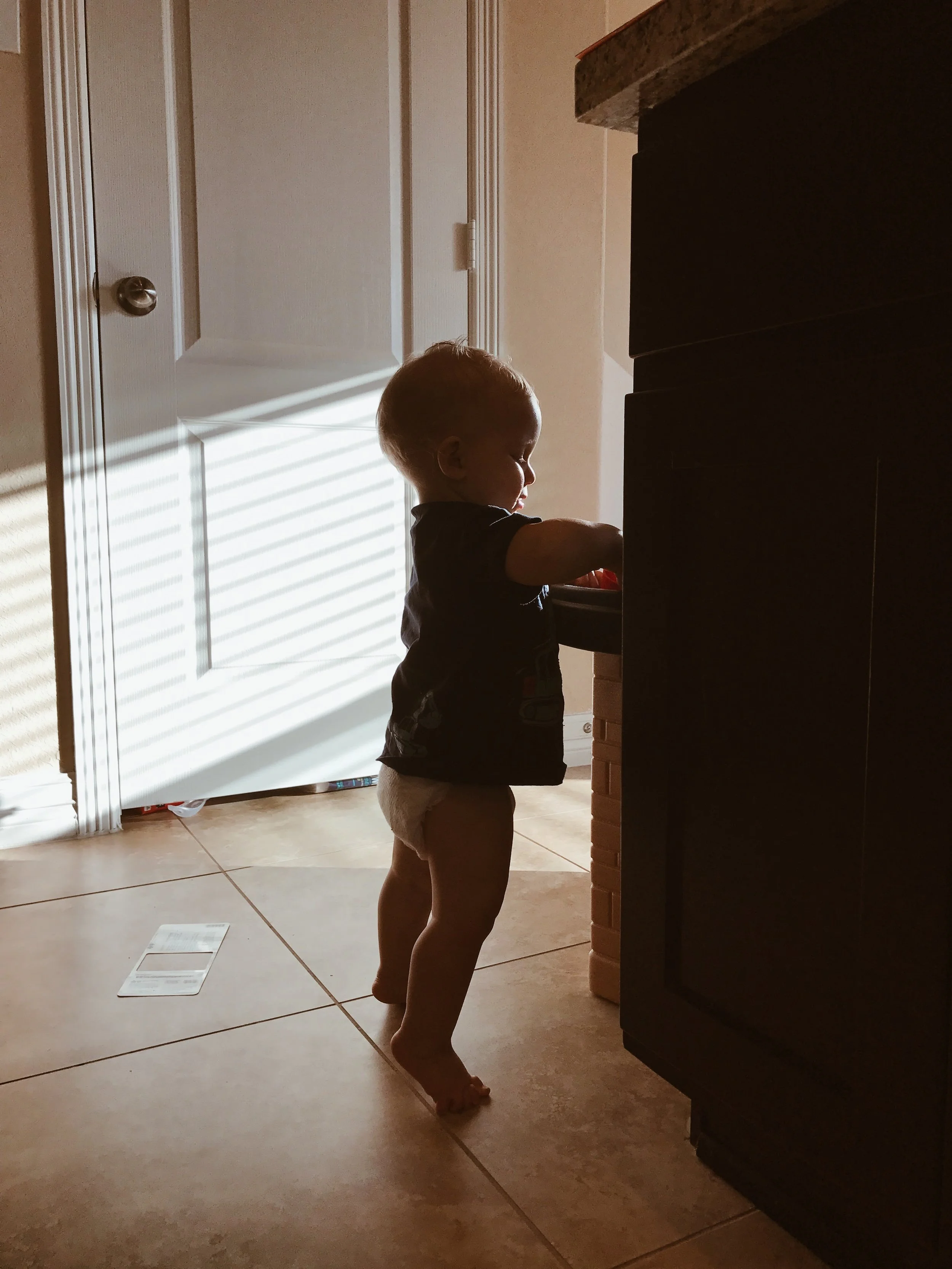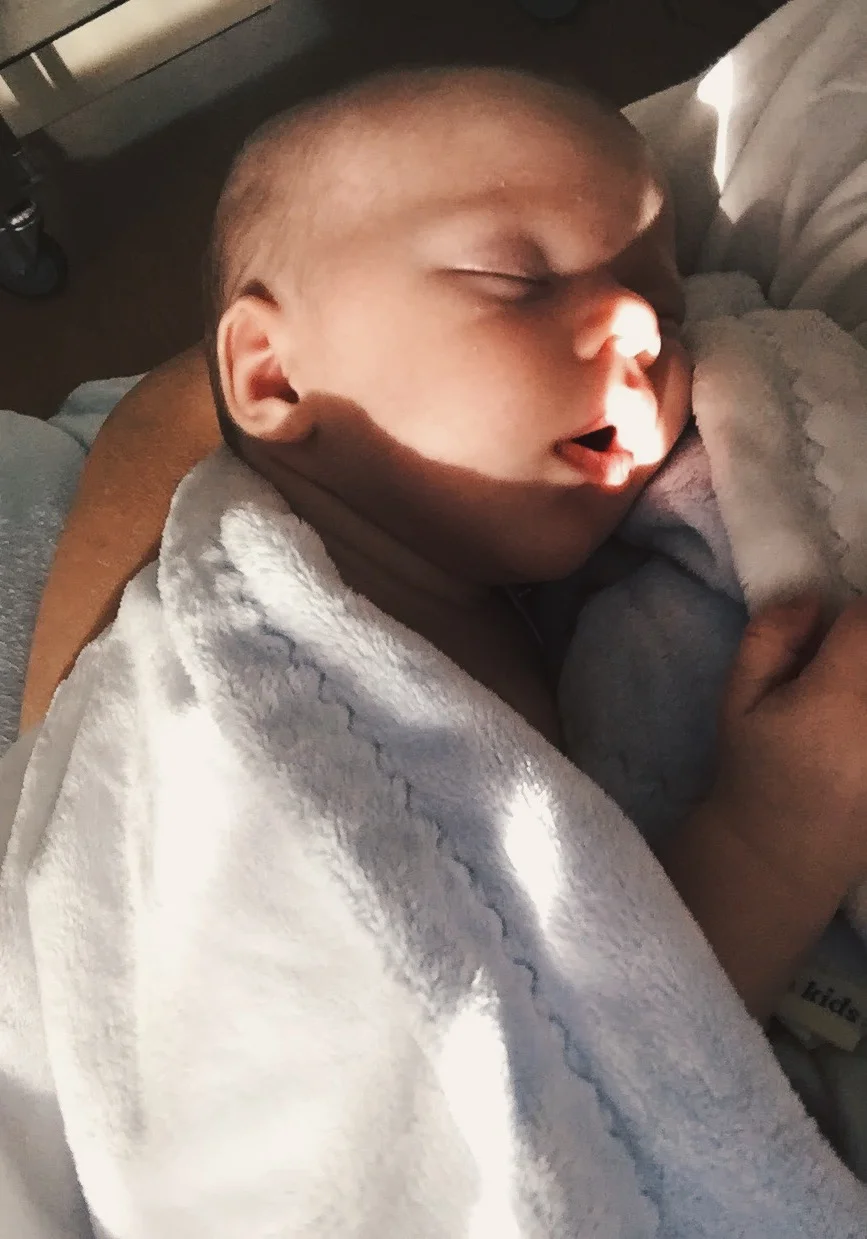Invisible
Her son runs, legs bowed and uncertain, mouth open, trying to swallow the world. “Da, da, da,” he babbles even though she is the one who is with him, the one who is always with him. She is the one who scoops him up whenever he falls and rights him back to his feet. She is the one who is out of bed in the middle of the night, the one who checks the warmth of his head with the soft part of her lips. She is the one who sits in his room until he is fully asleep, small snores escaping his tiny, open mouth. “Dad, da, da, da,” he says again, louder and louder, his mouth wide in a grin.
“Being a mother has made me invisible,” she thinks.
The noise of the playground sinks into her muscles, making them twitch and jump. She folds her arms across her chest to keep them from bouncing around her body. The place is so busy: kids shouting; mother’s voices correcting; tennis shoes squeaking against rubber and plastic and thundering over metal. She wishes they hadn’t come, and that instead, she had built the two of them a nest on the rug in their living room with soft blankets and soft toys and big books full of bright pictures surrounding them.
But her son’s face is shining. He waddles and shouts and chases after leaves that blow around his ankles and tease his hair. She follows him from spot to spot, digging out bits of sticks he tries to pop into his mouth or dusting off the back of his pants each time he falls. She follows him up the big plastic steps of the play structure. The space between each step is too tall for his legs, so to get up he throws his chest across the top of each one and pulls the rest of his body up behind him, breathless but delighted with his strength. She stands over him and scowls at the older kids who rush by him, the ones whose speed makes his legs wobble, the ones who shout and howl, the ones who bum into her legs and off again like pinball machines; her body his shield.
Eventually, they make their way back down, and he wanders over to the benches full of mothers on their cell phones, his hands flapping wildly to make them notice. In turn, they each look up and smile at him, their eyes and mouths softening for a moment before they return to their screens, mouths pursed, foreheads tight. None of them see her.
“I have become a familiar, a shadowy figure permanently attached to this radiant little boy.”
She doesn’t mind, not really. It started when she was pregnant like a shadow had been draped across her features, blurring them out.
“How’s the baby?” people would ask her, placing their too warm hands across her belly, fingers spread wide, never looking at her face.
And then, every choice she made was somehow attached to the baby.
“Eating for two now!” Or “Growing a baby is hard work, rest!”
Even her husband had stopped looking at her eyes and instead greeted her stomach, kissing her belly button, placing his cheek against her shirt and waiting for the baby to kick back in response.
And, once he was born, only ever the baby.
“How is he sleeping?” Or, “How is he eating? Breastmilk is so important for his immune system at this age.”
People would stop by with things for the baby: toy animals attached to strings and a wooden rocking horse and a giant plastic swing that made him vomit the only time she tried to use it. She understood of course because she too loved the baby. She too worried about his schedule and his habits. She too woke up in the middle of the night panicking because she wasn’t sure that she could hear his small, wet breathing. She spent hours googling things like “How to check your baby’s heart rate without waking them” or “Signs your baby needs a new sleep schedule” or “The best educational toys of the year.”
The baby is why she can’t bring herself to leave the too loud playground with the too rowdy kids and the too distracted mothers. He’s why she walks around with her back aching and hunched, shoulders stooped, arms out like a cage around his body. He’s why she lets herself continue to be invisible.





